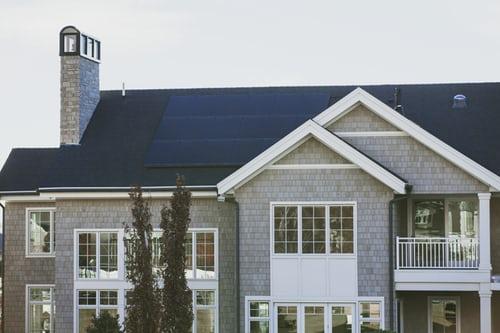The house is cozy, everyone’s had a lovely hot shower and snuggled up on the couch in front of the telly. The heating system is working on a low but steady heat as its snow outside in the garden and the last place we want to be is out there where it’s cold.
The big question being asked is how are you heating the house? Electric, gas, or the becoming increasingly popular, the solar panels. Each to their own and certainly everyone has their preference, but let’s delve deeper into solar and see the ins and outs of it all.
When it comes to solar systems, there are 2 main components: active and passive, each has its advantages and brings different things to the table.
Active solar vs Passive solar.
Active solar space heating requires the use of mechanics. Pumps and collectors and then storage tanks are all used in circulating the heat being generated around the home. They are also more in-depth and complicated than the passive system.
Active systems can be used in new builds as well as being retrofitted into existing homes, unlike with a passive system. For a more technical description click here https://www.quora.com/What-is-the-difference-between-passive-solar-systems-and-active-solar-systems and see a different aspect into solar systems.
When it comes to passive solar heating systems the energy and heat that is collected is trapped and circulated naturally throughout the home without the use of any mechanics. These systems are usually less expensive due to its simplicity and work best in newer builds.
5 Advantages of using a solar heating system.
- Free. While the initial set up won’t be free, thereafter it is. You have a constantly renewable source of energy, to use as you please. And this is vital if you have teenagers in the house, we know they like to stand in the shower for hours on end.
- Cost-effective. As winter approaches and more and more appliances being used it can soon add up. Radiators being turned up, baths taking longer and central heating never seeming to be switched off, solar is the way forward if you don’t want your wallet to be crying each month-end.
- Carbon footprint. You’ll be doing your part in taking care of the environment, no gas or oil emissions and using an energy source that is readily available just makes sense.
- Efficiency. Approximately 80% of the radiation from the sun is generated into heat and heat energy for the home.
- Renewables. This is where it significantly starts to reap rewards. Whether you love in a domestic or commercial building be sure to see if you are entitled to claim the renewable heat incentive, where you’re paid for making your own heat.
Getting a solar system installed.
A few factors go into having a solar system installed, yes you’ve done the hard work by doing research into all the systems available and what’s going to work best for you, but having a team come in the house and doing the job right can still be a bit daunting.
When starting take a minute to watch this short video on things not to do when browsing for the perfect company to do the job, some we might not have considered being such a bad thing can turn into a bigger headache than anyone would like.
Look for a business that has a decent amount of years of experience, they will have been in various situations and be able to deal with any issues they might come across. Experience is key, this is your home and it’s certainly not a small amount of money you’re investing. Check their website and credentials.
On their site they will also proudly display all qualifications and licenses they have obtained, they should be proud of these achievements so be sure to look into it.
Then there is the reputation. Ask around, family and friends will soon tell you if they are the right choice and the quality of the completed work. A satisfied customer will always share their happy and successful experience with others.
If you’re not sure where to start, why not see the top solar hot water system installations company for reputable service and quality customer care you can rely on. With many years in the industry, you can be sure you are in good hands.
Arrange an initial consultation and have a chat with the firm, discuss costs upfront so there are no surprises down the line and ensure they have insurance warranty in place. These should last up to around 10 years and will be the lifesaver in the event something was to happen.
Either way you decide to go, the main objective is to have a heating system in place that won’t break the bank, the family is warm and taken care of or you can focus on the more important aspects of life.







